How to prune viburnum bushes – expert tips to keep them in good health
Discover how and when to complete this essential task
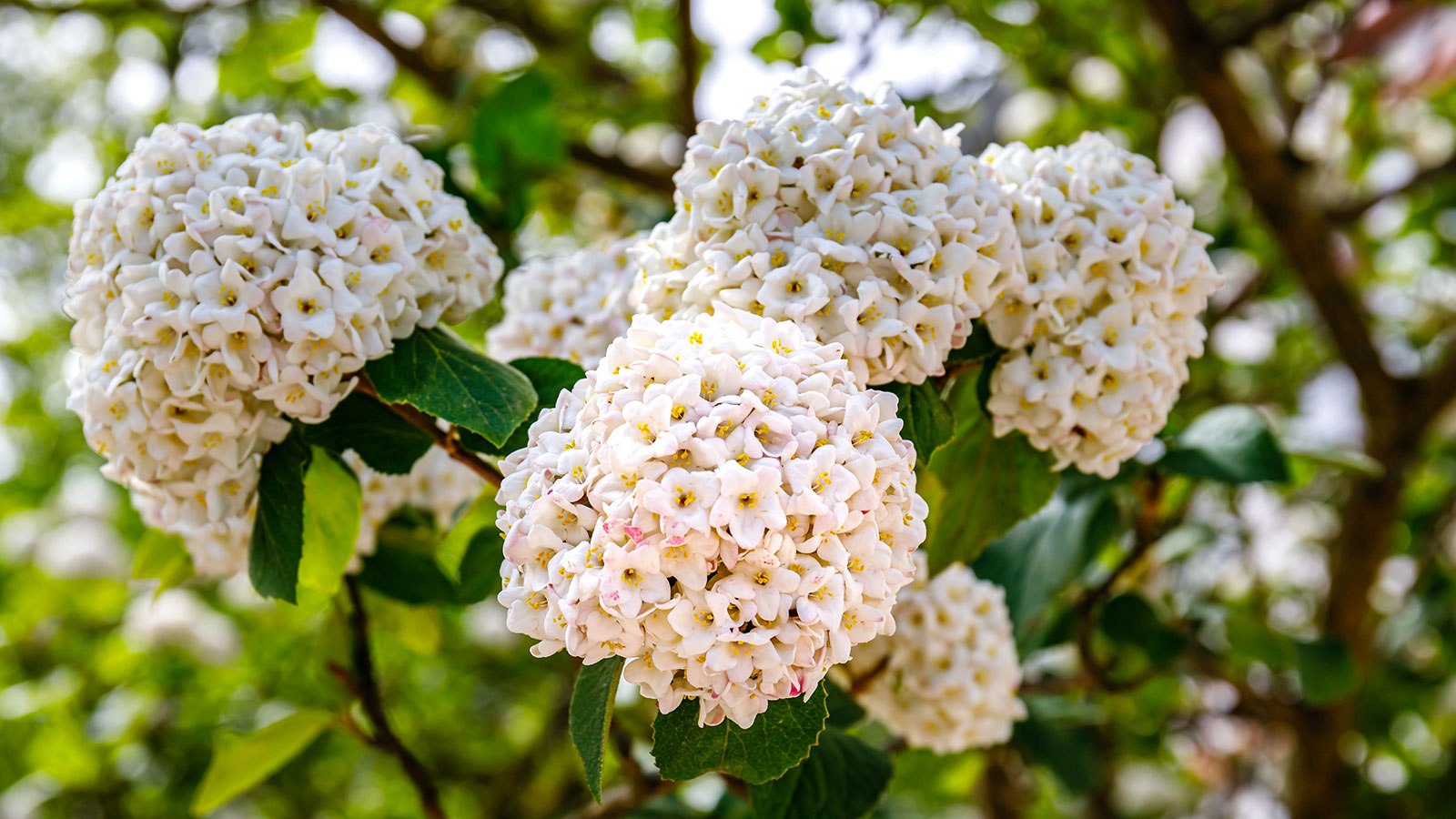
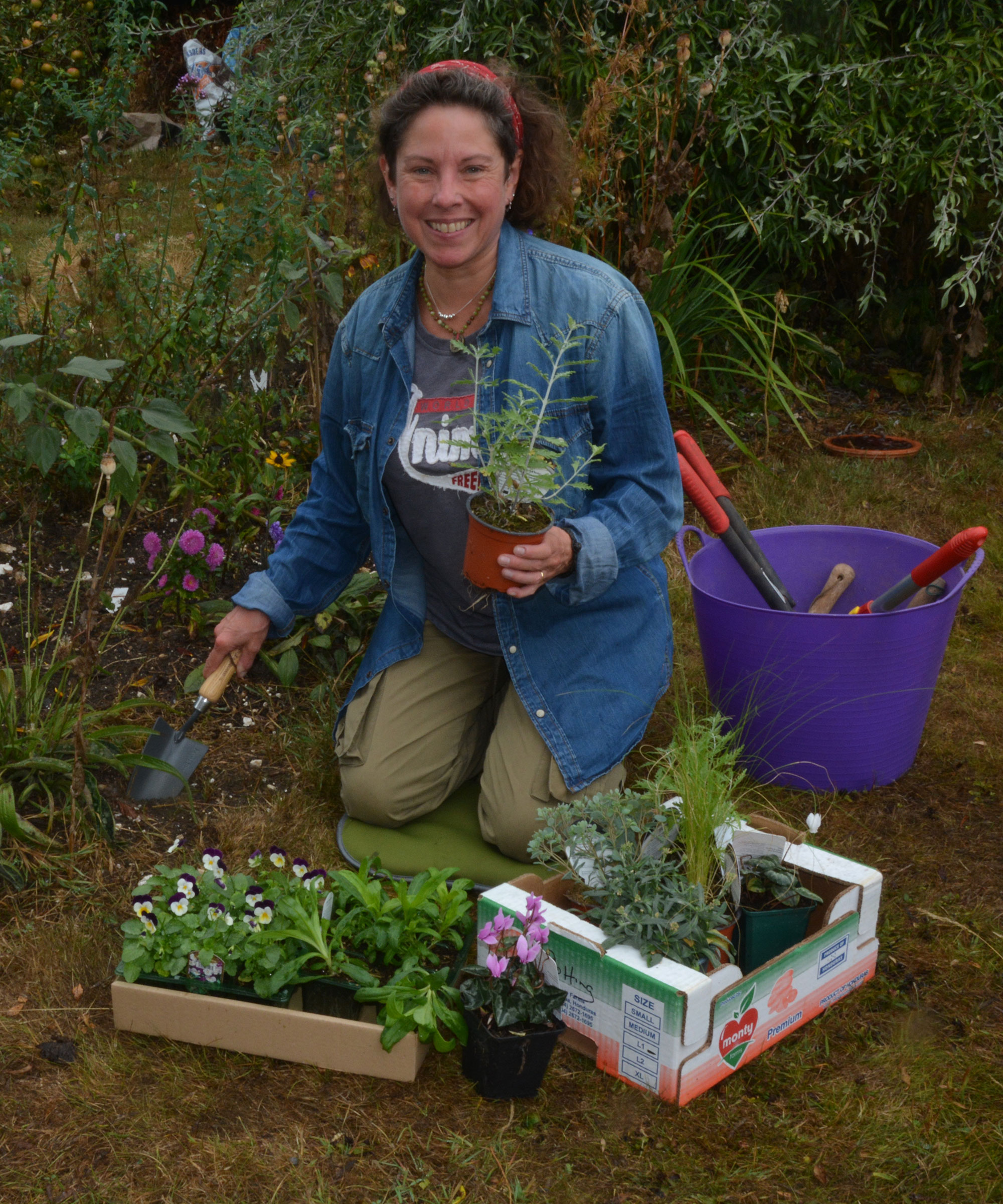
It is important to know how and when to prune your viburnum shrubs because if you cut them back in the wrong season or when conditions are unfavorable you won't get as many flowers and berries the following year and may even damage your plant.
There are many varieties of viburnum, some deciduous (they lose their leaves in the fall) and some evergreen, and the joy of them is they are all low maintenance and easy to keep in shape. They are a very popular flowering shrub because they are one of the few to flower in winter, sprouting small clusters of pink and white blossom, and several including V. burkwoodii and V. opulus also produce a beautiful scent.
I have a large Viburnum tinus that we inherited when we moved into our home several years ago and the techniques I use to keep it in shape apply to all varieties, so if you follow my advice you will end up with a healthy, shapely shrub with prolific flowers.
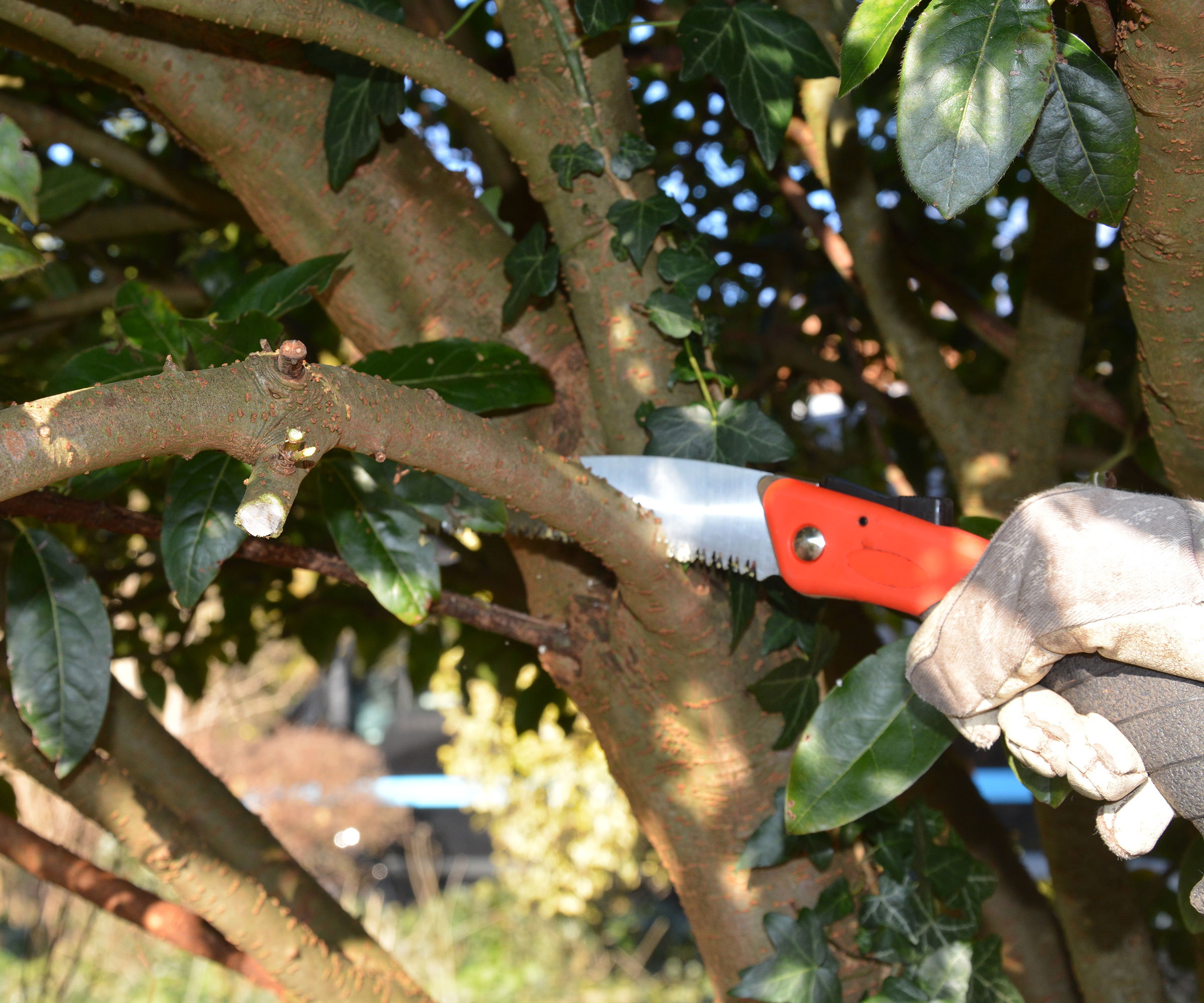
Neglected viburnums can become overgrown, so you can prune them back to shape over a three-year period

As the gardening editor of Amateur Gardening magazine, Ruth spends her days writing about and photographing the gardening jobs that her readers should be tackling each week. Horticulturally trained, she has qualifications from the Royal Horticultural Society. Pruning is one of the key tasks she offers advice on in the weekly magazine, showing readers how they can keep their trees and shrubs, such as viburnum, in shape.
How to prune viburnum shrubs in 3 easy steps
As a general rule, viburnums are pruned after they have flowered. Whether your viburnum is a deciduous variety such as Viburnum carlesii and Viburnum x burkwoodii, or evergreen like Viburnum tinus and V. cinnamomifolium (cinnamon viburnum), they all have the same pruning regime.
1. Remove any dead, damaged and diseased wood
The first step with any pruning regime is to remove the ‘three Ds’ – wood that is dead, damaged and diseased.
You should also add to this list any wood that is weak, spindly and growing inwards into the bush, cluttering its interior and blocking healthy airflow and sunlight that is essential for good growth and flowers.
Old, dead wood can be tough to remove and too strong for pruners to work through, so my tools of choice are long-handled loppers, such as these Fiskars ones on Amazon, that are ideal for reaching high-up wood, and a sharp folding pruning saw, also from Amazon, with a comfortable grip.
Once these unwanted branches have been removed, I chop them up small or shred them in a wood shredder, like this Sun Joe one from Amazon, which is a useful, time-saving tool if you have lots of wood to get rid of.
You can then either use the chippings as a type of mulch or use them as a valuable ingredient when making compost.
Before you start pruning the rest of your viburnum, remember the old saying ‘look twice and cut once’ – an invaluable way of reminding yourself not to take off too much wood because once it’s removed you can’t put it back! Following the one third pruning rule can help you avoid removing too much too.
2. Remove dead flowers
Annual viburnum pruning is simple because all you need is to snip away the spent blossoms using sharp, clean pruners such as these from Amazon, cutting the stems back to a healthy leaf node or bud.
This will encourage the plant to produce new growth that will harden and mature over the next few months and bear blossom next spring.
Look for signs of pests and disease, and if you spot diseased wood, cut it back to healthy growth and dispose of the clippings in your bin – never add them to the compost heap.
Make sure you clean your garden tools after use to prevent them rusting, and to help stop the spread of pest and disease.
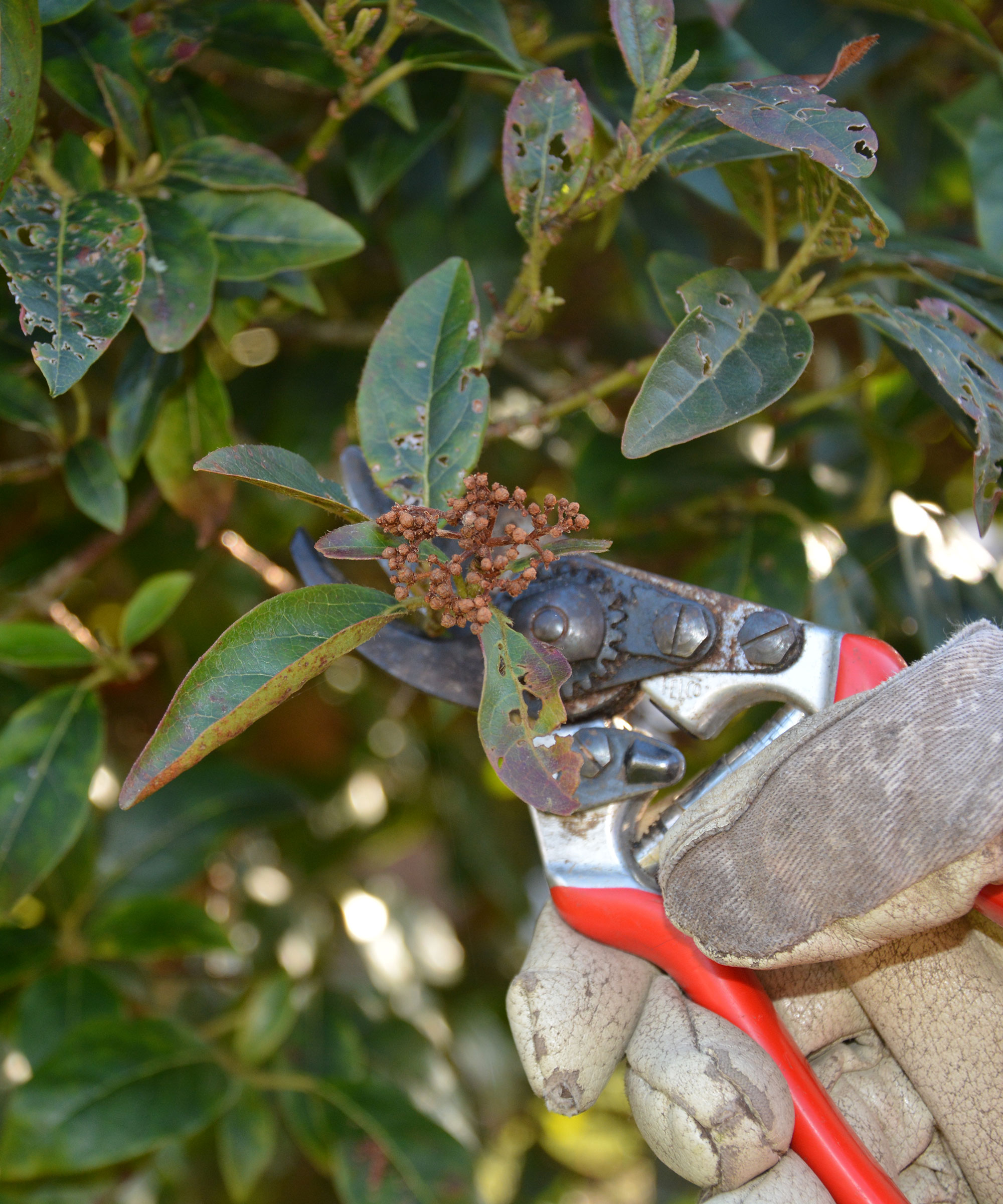
Use pruners to snip off dead viburnum flowers
3. Cut away old and unproductive wood
Remove thicker stems that have grown lanky and unshapely and stopped flowering reliably.
Use loppers or a pruning saw to remove them but don’t take too many in one go as it can leave the shrub unbalanced. Instead, wait until the same time next year to remove more.
Don’t cut branches flush against the trunk, but leave a little stub about 1in long so a healing callus can form naturally.
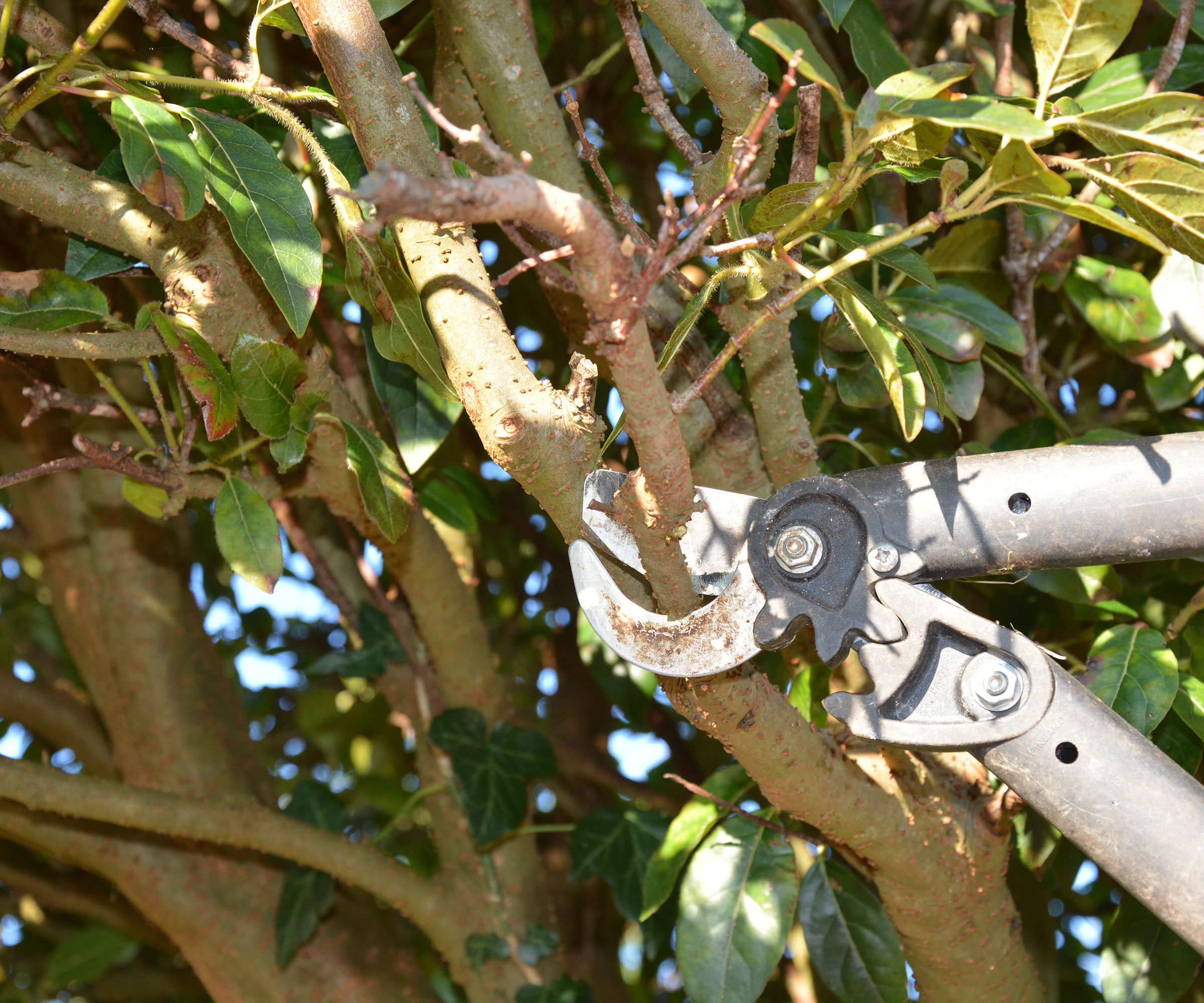
Use long-handled loppers to remove dead wood that is high up the shrub
Viburnum pruning aftercare
Viburnums don’t require much after-care following pruning, but I do recommend you feed them with a tree and shrub fertilizer such as this BioAdvanced one on Amazon to help them make the most of their growing season ahead.
Water it in following the manufacturer's guidance. Mulching after this will hold in the moisture and add nutrients to the root area.
Can viburnum be cut back hard?
Most viburnums don’t need hard pruning and it can ruin their shape. However, when plants have been neglected they are likely to grow out of shape and their old wood will flower less.
When this happens, simply remove the oldest stems over a three to four year period, so the plant maintains its shape and continues to flower on the younger growth.
By the end of the process you will be left with a healthy, flowering and shapely tree made up of new wood.
Sign up to the Homes & Gardens newsletter
Design expertise in your inbox – from inspiring decorating ideas and beautiful celebrity homes to practical gardening advice and shopping round-ups.

Ruth is a Contributing Editor for Homes & Gardens, and formerly Gardening Editor of Amateur Gardening magazine. She is horticulturally trained, with a qualification from the Royal Horticultural Society. Her work for Amateur Gardening, the world's oldest weekly gardening publication, involved matching gardening tasks with each season, covering everything from sowing and planting, to pruning, taking cuttings, dealing with pests and diseases and keeping houseplants healthy. She is an expert in ornamental plants and edible crops, and everything she writes about and photographs is in her own garden, that has been a work in progress since her family moved there in 2012.
-
 Martha Stewart's houses – inside her most iconic properties, from Cantitoe Corners to Turkey Hill
Martha Stewart's houses – inside her most iconic properties, from Cantitoe Corners to Turkey HillThe lifestyle guru built her legacy around her homes, some of which are the most recognized homes in modern American history – we explore her portfolio
By Megan Slack Published
-
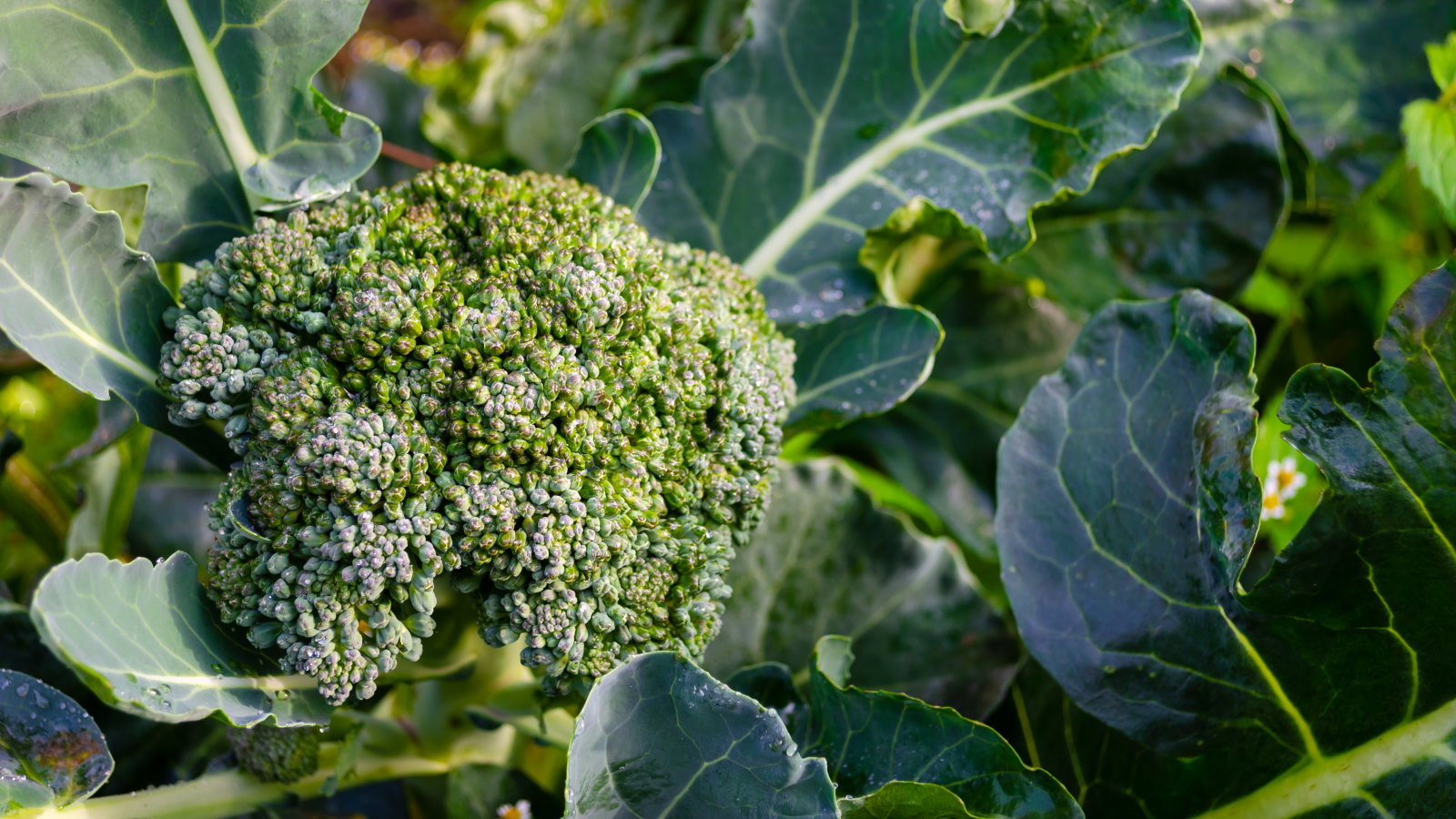 These 5 plants can help you get the best, and potentially tastiest, broccoli ever – discover what to plant with broccoli, and what to avoid
These 5 plants can help you get the best, and potentially tastiest, broccoli ever – discover what to plant with broccoli, and what to avoidOur selection of vegetables, herbs, and flowers is perfect for companion planting with broccoli
By Drew Swainston Published